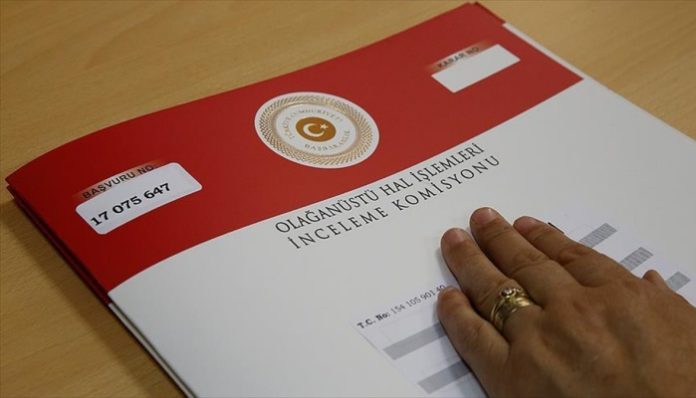A commission set up by the Turkish government to look into complaints from individuals who were affected by government decrees during a state of emergency (OHAL) in Turkey has so far rejected 33,700 applications out of the 36,000 it has processed since its establishment in summer 2017.
According to a report by the state-run Anadolu news agency the commission, which had received 125,000 applications, will continue to evaluate remaining 89,000.
Turkey’s Justice and Development Party (AKP) government declared a state of emergency in the aftermath of a failed coup attempt in the country on July 15, 2016 that remained in effect until July 19, 2018.
During the state of emergency, the AKP issued a number of government decrees, known as KHKs, through which thousands of academics, politicians, teachers, doctors, officials, businessmen, artists and journalists were purged due to their real or alleged connections to the faith-based Gülen movement, which is accused by the government of being behind the failed coup. The movement strongly denies any involvement in the abortive putsch.
The commission accepts complaints regarding dismissal from the civil service, jobs or organizations; dismissal from university and the loss of student status; the closure of associations, organizations, unions, federations, confederations, private health institutions, private education institutions, private institutions of higher education, private radio and TV organizations, newspapers and magazines, news agencies, publication houses and distribution channels; and the loss of retiree ranking through government decrees.
Individuals whose applications have been rejected by the OHAL commission have the right, within 60 days, to file a case at the Ankara 19th and 20th administrative courts for cancellation of the decisions of the OHAL commission.
The idea of the establishment of a commission was proposed to Ankara by Thorbjørn Jagland, the secretary-general of the Council of Europe. Many lawyers have been critical of Jagland for giving the Turkish government the opportunity to play with justice and never close cases.
“Mr. Jagland will be 85 or 90 when this story reaches the European Court of Human Rights [ECtHR]. We will not be able to even ask him ‘Do you see what you did?’” human rights defender Kerem Altıparmak tweeted concerning Jagland’s response to two dismissed teachers who were rejected by the ECtHR on the grounds that they had not yet exhausted all domestic remedies.
The ECtHR in 2017 rejected a total of 25,000 applications submitted by Turks who are victims of the immense purge carried out by the Turkish government.
German Bar Association (DAV) Chief Ulrich Schellenberg, who criticized the rejection of Turkish applications, said there was no working state of law in Turkey.
Schellenberg added that the condition of exhausting domestic remedies had to be considered in a different light if one-third of judges and prosecutors were arrested in a short period of time and free advocacy could not be conducted due to oppression in a country.



